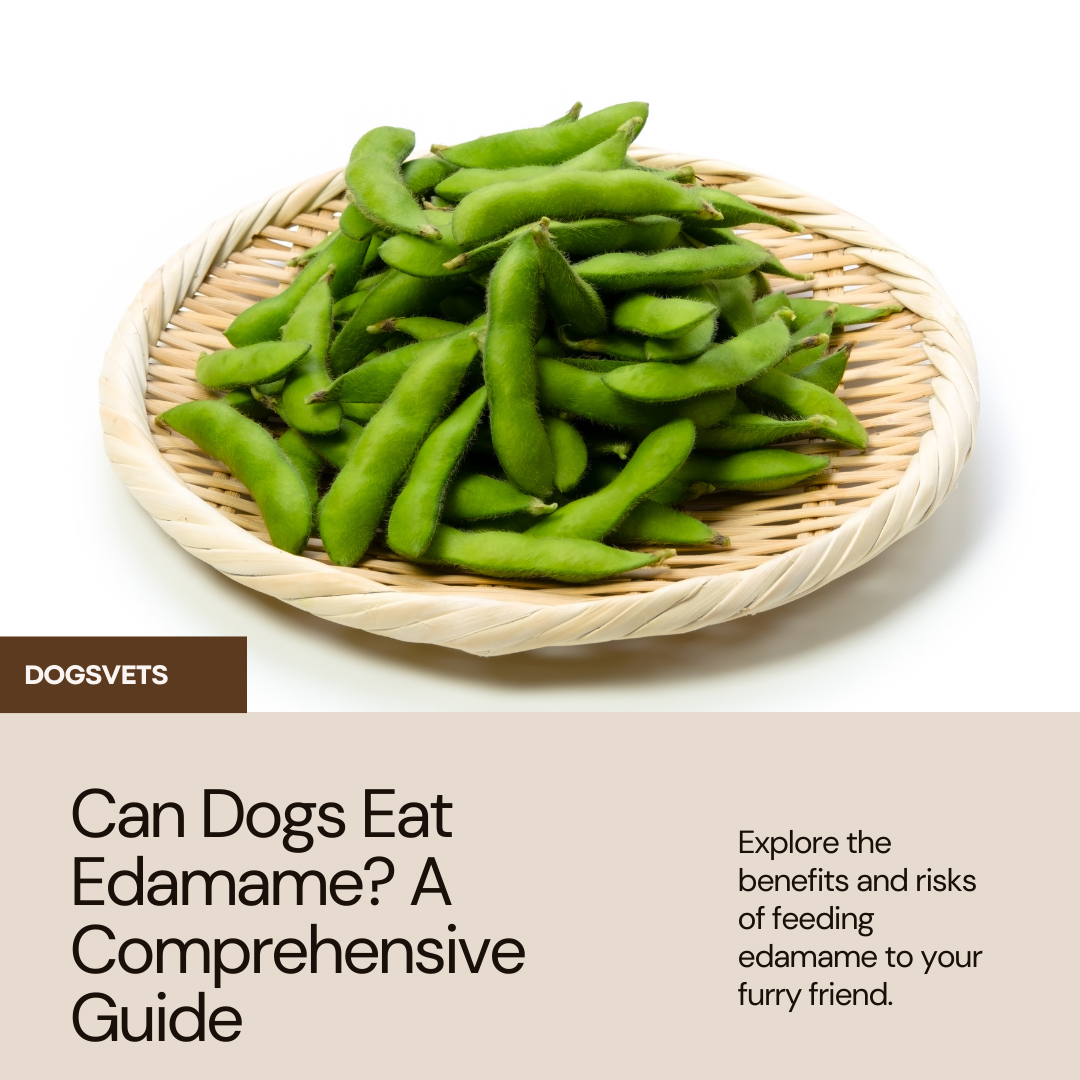Last Updated on May 16, 2024 by Dog Lover
Can Dogs Eat Edamame? A Comprehensive Guide
In this comprehensive guide, we’ll explore the topic of whether dogs can eat edamame and delve into the potential benefits and risks associated with this popular snack.
As a pet writer and blogger for renowned publications , I’ve dedicated my career to providing pet owners with accurate and helpful information.
:max_bytes(150000):strip_icc()/boiled-edamame-2030953-hero-01-287898b35fa74d6b83f22e7cc7094658.jpg)
What is Edamame?
Edamame are immature soybeans that are typically boiled or steamed and served as a snack or appetizer. They are a popular food in Japanese cuisine and have gained popularity worldwide due to their nutritional value and unique flavor.
Can Dogs Eat Edamame?
The short answer is yes, dogs can eat edamame in moderation. However, it’s essential to consider several factors before introducing this food to your canine companion’s diet.
Nutritional Value of Edamame for Dogs
Edamame is a good source of several essential nutrients for dogs, including:
- Protein: Edamame contains high-quality plant-based protein, which can be beneficial for dogs.
- Fiber: The fiber in edamame can help promote healthy digestion in dogs.
- Vitamins and Minerals: Edamame is rich in vitamins A, C, and K, as well as folate and several minerals like iron, magnesium, and potassium.

Potential Benefits of Feeding Edamame to Dogs
Incorporating edamame into your dog’s diet may provide the following benefits:
- Improved Digestion: The fiber in edamame can help regulate bowel movements and prevent constipation in dogs.
- Reduced Inflammation: Edamame contains antioxidants and anti-inflammatory compounds that may help reduce inflammation in dogs.
- Healthy Skin and Coat: The vitamins and minerals in edamame can contribute to a healthy skin and coat in dogs.
Potential Risks of Feeding Edamame to Dogs
While edamame can be a healthy addition to a dog’s diet, there are some potential risks to consider:
- Allergic Reactions: Some dogs may be allergic to soy, the main ingredient in edamame. If you notice any adverse reactions, such as vomiting, diarrhea, or skin irritation, discontinue feeding edamame and consult your veterinarian.
- Digestive Issues: The high fiber content in edamame may cause digestive issues, such as gas or bloating, if introduced too quickly or in large quantities.
- Choking Hazard: The pods of edamame can pose a choking hazard, especially for smaller dogs. Always remove the pods and cut the edamame into bite-sized pieces before feeding.

How to Feed Edamame to Dogs
If you decide to feed edamame to your dog, follow these guidelines:
- Choose Plain, Unsalted Edamame: Avoid edamame that has been seasoned with salt, spices, or other additives, as these can be harmful to dogs.
- Remove the Pods: Always remove the pods before feeding edamame to your dog, as they can be a choking hazard.
- Start with Small Amounts: Introduce edamame slowly and in small quantities to gauge your dog’s reaction and prevent digestive issues.
- Consult Your Veterinarian: Before making any significant changes to your dog’s diet, it’s always best to consult with your veterinarian, especially if your dog has any underlying health conditions.
Conclusion
In conclusion, dogs can eat edamame in moderation as part of a balanced diet. Edamame provides several essential nutrients and potential health benefits for dogs.
However, it’s crucial to consider the potential risks and introduce edamame slowly and in small quantities. Always consult with your veterinarian before making any significant changes to your dog’s diet.
FAQs
Can edamame cause allergic reactions in dogs?
Yes, some dogs may be allergic to soy, the main ingredient in edamame. If you notice any adverse reactions, such as vomiting, diarrhea, or skin irritation, discontinue feeding edamame and consult your veterinarian.
How much edamame can I feed my dog?
It’s best to start with small amounts of edamame and gradually increase the quantity if your dog tolerates it well. As a general guideline, limit edamame to no more than 10% of your dog’s daily caloric intake.
Can edamame cause digestive issues in dogs?
Yes, the high fiber content in edamame may cause digestive issues, such as gas or bloating, if introduced too quickly or in large quantities. Introduce edamame slowly and in small amounts to prevent digestive problems.
Are there any health benefits of feeding edamame to dogs?
Yes, edamame provides several potential health benefits for dogs, including improved digestion, reduced inflammation, and a healthy skin and coat. The protein, fiber, vitamins, and minerals in edamame can contribute to your dog’s overall well-being.
Can dogs eat edamame pods?
No, it’s not recommended to feed edamame pods to dogs, as they can be a choking hazard, especially for smaller breeds. Always remove the pods before feeding edamame to your dog.
Is edamame safe for dogs with diabetes?
Edamame is generally safe for dogs with diabetes, as it is low in carbohydrates and high in fiber. However, it’s essential to consult with your veterinarian before introducing any new foods to your dog’s diet, especially if they have an underlying health condition.
Can edamame be used as a training treat for dogs?
Yes, edamame can be used as a training treat for dogs in moderation. Cut the edamame into small, bite-sized pieces and use it as a reward during training sessions. Remember to account for the calories from edamame when calculating your dog’s daily caloric intake.
Source: Can Dogs Eat Edamame? Is It Safe For Dogs? – Wild Earth


















